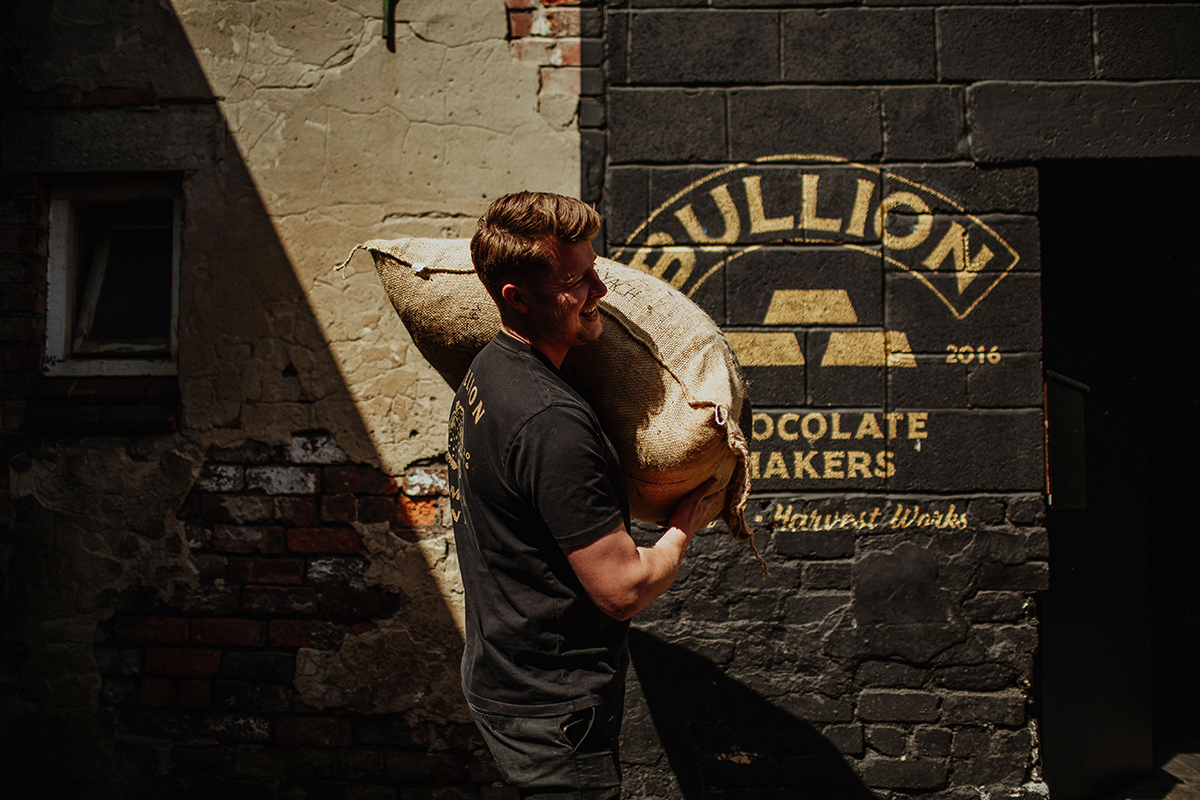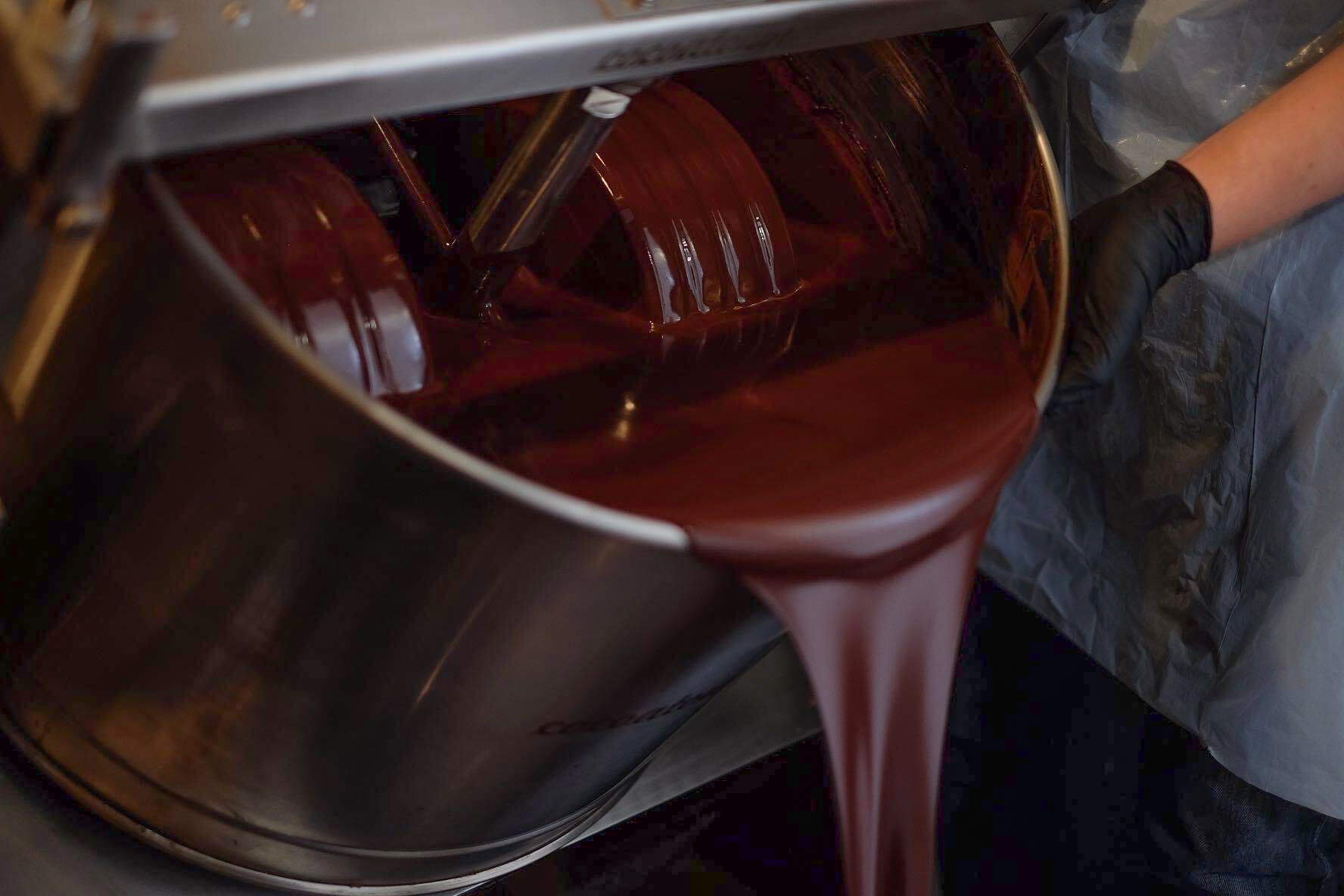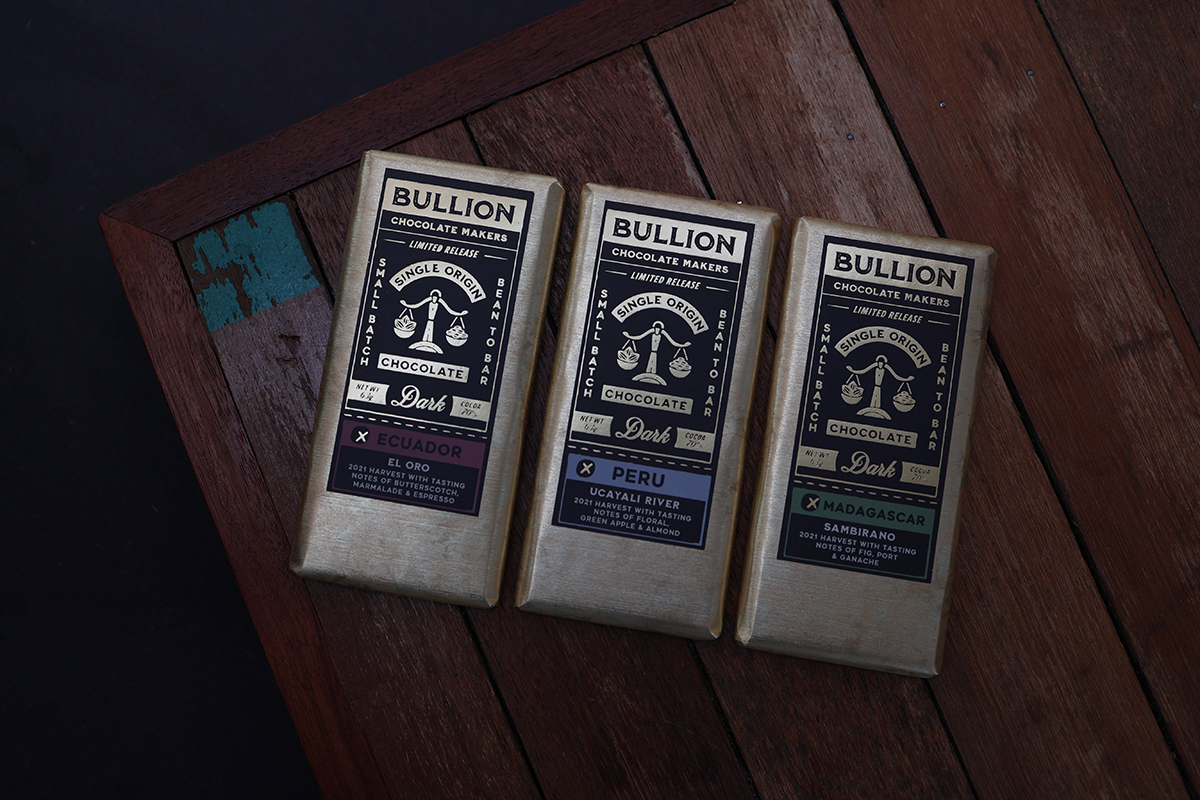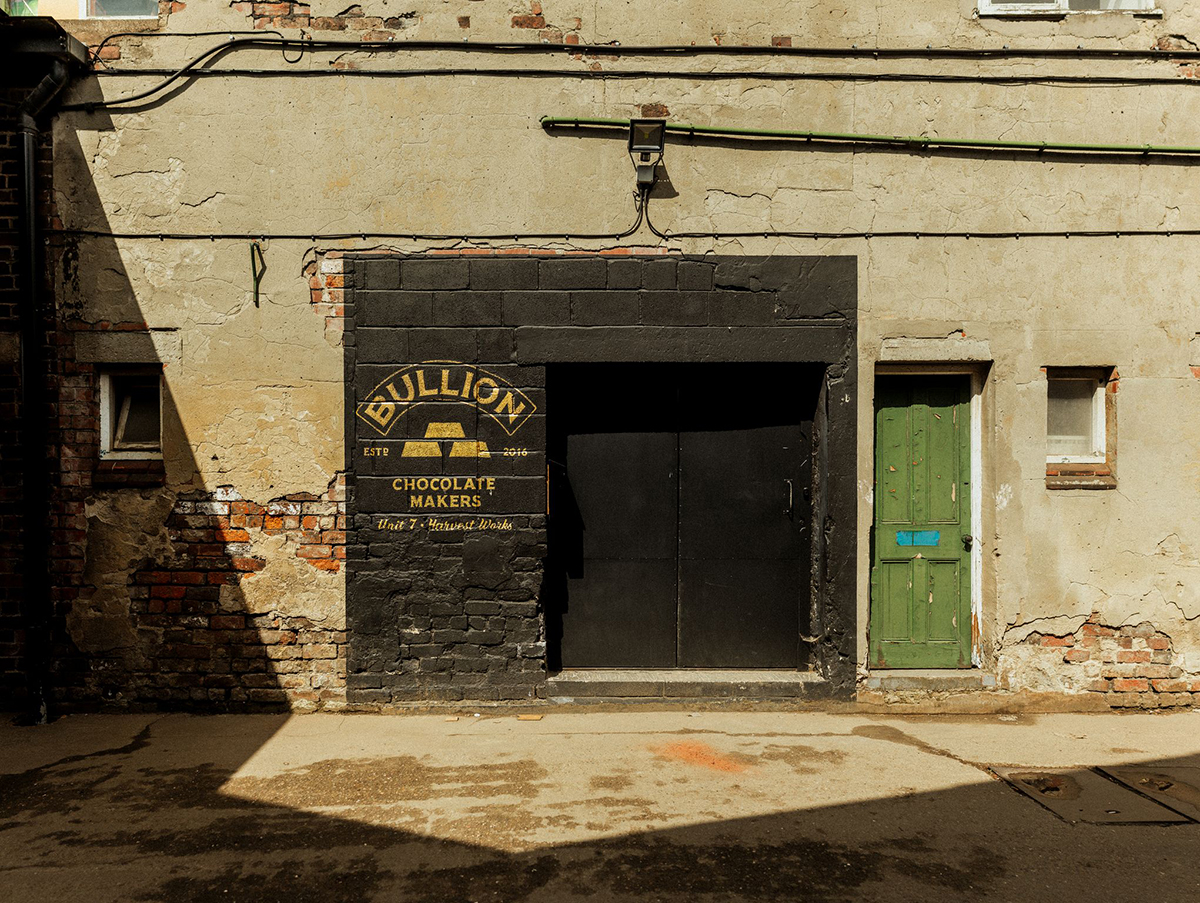Striking Gold: A Conversation with Bullion Chocolate

Here at Keylink, we love a success story in chocolate, so it seemed only right that we interview one of Sheffield’s very own; Max Scotford.
If you haven’t had the pleasure of meeting him before, allow us to introduce you. Bullion Chocolate is Max’s bean-to-bar vision, and he’s been producing craft-origin chocolate bars under the name since 2016.
Plus, as a fellow Sheffield-based business, he happens to be a customer of ours, too.
Rather soon after the first few batches of Bullion, Max’s chocolates secured a place in Harvey Nichols in Leeds, and scored two name-drops in Vogue. Since then, Bullion has expanded to include cocktail evenings, tasting events, bakery goods, and more.
So, how has he been so successful?
Well, after an analytical dive into the Bullion brand and a half-an-hour chat with the man himself, the how’s and the why’s all become apparent.
The first thing you notice about Max Scotford is how down-to-earth and level he is, even as he wrestles with tangled headphones whilst trying to answer our phone call. His tone is comfortable, light, and friendly, nestled into a northern way with words.
First off, thank you for taking the time to have a chat with me today. I have to say, you’ve really made something special in Bullion - one thing that jumps out at me is how your products, your brand, your ethos, all come together so seamlessly!
Well, what we’re doing here is a bit different, we’re making the chocolate from scratch. So, you tend to attract a certain character that has a passion for - you know, craft, in general, is the sort of sector where, if a person’s into it, then they love the core of what it stands for; the transparency of where it comes from and how it’s made. You get more of a loyal following naturally in this industry.
When I first started Bullion - oh, 5 or 6 years ago now - there weren’t many people doing craft chocolate, there wasn’t a lot to go off in terms of inspiration. So I looked towards similar sectors to my own, craft coffee and craft beer, to see how they communicated their brands. There are so many similarities, and they [craft chocolate, coffee, beer] are premium products, going for premium prices. I mean, once you’ve tried it, you’ve got it - but how do you get people to try it in the first place?
It’s something that the coffee industry has done really well. If you think about it, a few years ago, most people didn’t even know what a flat white was, let alone be willing to pay £3 for one, d’you know what I mean?
Yeah, we completely knew what he meant, and it’s true.

And something that I also notice is that you work with Silva Cacao, can you tell me a bit more about that and how that ties in with your brand?
Part of what we do is, obviously, chocolate, but a big part of it is that we keep it as pure as possible, we don’t really add anything to it. We let the beans speak for themselves.
So, if the beans were bad quality, you’d be able to tell, because we’re not masking any of the flavours, we’re just amplifying them. We need the best beans in order to make our best chocolate.
I think having a happy grower, looking after your grower, is all part of it. If they’re looked after, you’re going to have a better product, too. That’s why we looked to Silva Cacao and Uncommon Cacao because they’re leaders in the sector, and they actively look out for the welfare of the grower, and they do initiatives at the origin to support the growers.
All of that means the growers are happy in what they do, so they’re producing a better quality product, which is key in good chocolate.
We don’t really promote that we’re ethical - it’s just part-and-parcel! I think it’s Uncommon Cacao who says “the farmer’s prosperity is the key to good chocolate”, and I think that’s a really nice way of putting it.
So, I understand what makes Bullion Chocolate so good, but what would you say makes good business?
Well, you’ve got to have a good work ethic. We’ve been going 6 years, we’ve got 14 staff, we’ve got a café, we’ve got a bakery - we’ve diversified a bit. But, for the first 3 years, it was pretty much just me working 7 days a week and my colleague, who still works with me today, who was coming in every Wednesday and doing the tempering with me. It was full-on, I didn’t take a penny out of the business - you’ve got to prove the business idea works.
You’ve also got to be able to take risks. One good thing about having a small business is that you can act on the fly. We’ve diversified a lot now, and those were just ideas that we thought would be quite cool and, because we’re so small, we can make that happen at minimal cost.
Then, the other thing I’d say is you’ve got to really have a vision. I mean, I’ve had a few business ideas in the past that all tend to revolve around food. I don’t know if I’m addicted to chocolate, like, everyone likes chocolate, I just really like it, because Bullion was the first where I could fully see a vision for it. Not just the products I wanted to do, but Bullion as a brand and what it meant to me, I could just see it clearly, like I could walk into it and make it happen.
Then, you can realistically set goals, tasks, and action points, because you know exactly what you’re working towards.

How do you, or did you, cope with any tough hurdles? You know, if you run into difficult times, what do you do to push through it?
If you have a strong, solid vision of what you want your business and brand to be, and you have a goal, I think you’re naturally going to draw towards it in the decisions you make.
But one thing I’ve always done is just get it all down on paper - whatever the issue is, get it down on paper. Then I break it down into elements or steps, and then I just work through them and, tick them off, get them done.
I’ve also seen that you’ve recommended mentors, how effective has mentoring been for you?
Well, I set up the business when I was 22, I had a good job in software and marketing, and everyone thought I was a bit of a nutter for wanting to give it all up to pursue chocolate making.
And I met this guy, a businessman, and I explained to him what I wanted to do. He was the first person who really understood it, who thought it had legs and could go somewhere. It wasn’t validation as such, I knew I was going to do it anyway, but he was the first person to believe in it.
He’s still with me now, on our board, and it’s great to be able to bounce ideas off of him, and he’ll help me make strategic decisions with the business.

Has social media been important in your journey as a business?
Social media has played a key part in us showing how we’re different and educating others about our process and our craft. And now, we’ve got a facility that allows us to bring people into the factory and show them what Bullion chocolate is, and why it’s special - we don’t need to rely on social media as much.
When you give people an experience, a connection forms between them and that thing. You’re going to stay with them, whenever they go to another chocolate maker, or they’re just chatting to someone about chocolate, or whatever.
It’s not just a bit of chocolate, there’s so much more behind it, and it’s great to be able to show people that.
We’ve also started bringing people in for tasting sessions where we pair our origin chocolate with cheeses, natural wines, craft beers - chocolate works with pretty much everything. It attracts an audience who shares our same fundamental ethos and philosophy when it comes to craft-products, arguably more so than social media does.
And we hear that you’re going to be taking on another physical shop for another business avenue, Doughboy Group, what’s happening with that?
Well, over lockdown, we came up with a cookie concept, and now we’re on the verge of opening our first cookie shop on Division Street, in Sheffield. We’re going to have a Bullion cookie as our staple, and then 5 other cookies that come round on rotation.
Imagine those donuts that have been topped, we’re doing cookie versions of that, and they’re going to change every week, other than the Bullion.
We’re hoping that we’ll be opening doors for the first time around the middle of May.
It’s safe to say we’ll be one of the first in line on opening weekend.
After chatting with him, what’s clear is that Max is a Yorkshireman; a Sheffield lad through and through. And, perhaps, that’s all part of the magic that’s made Bullion Chocolate a success - the unwavering drive, the straightforward practicality, and the passion for the people that lie at the very heart of his vision.
.svg)
 white.svg)